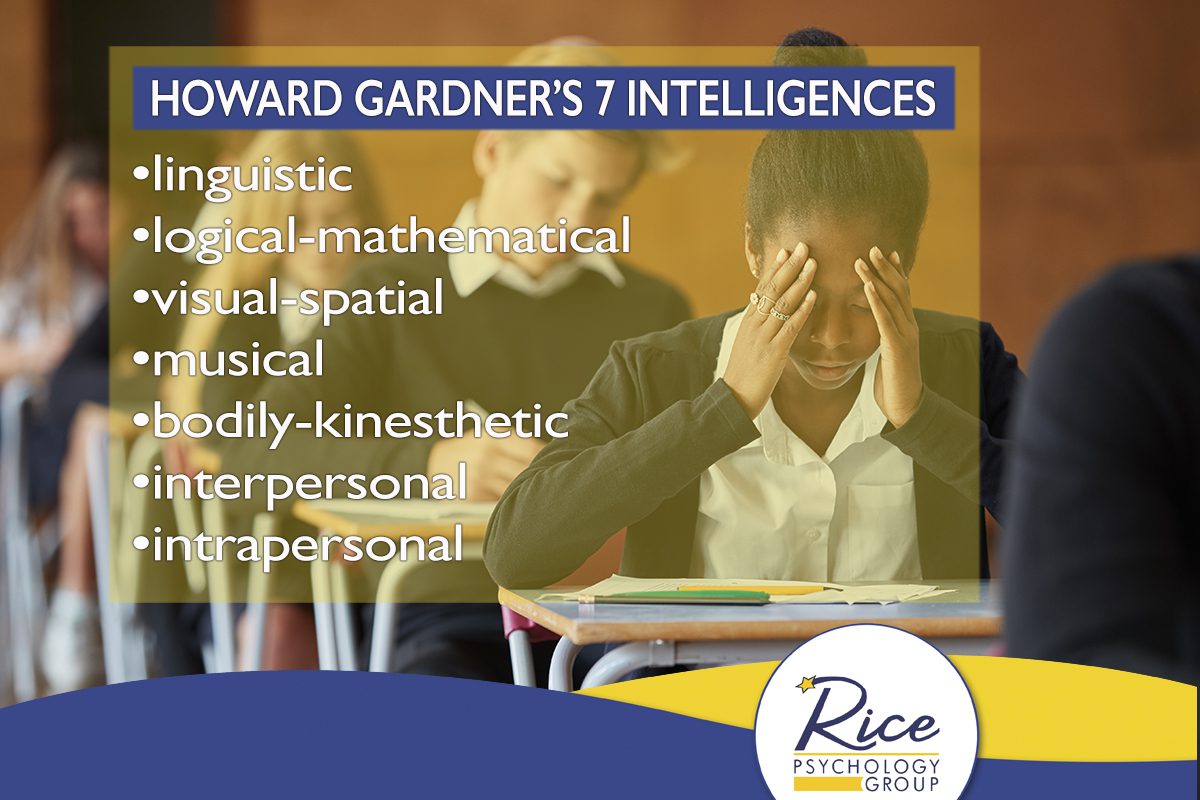
Consider the following story as it relates to this week’s topic.
Karen has been a fan of paintings and portraits since before we began dating. I enjoy them, but art isn’t my cup of tea. Because I love Karen, I try to get excited when we go to museums and she tries to get me to understand what makes a specific piece so great. One day, at a museum, she finally stopped me in my tracks and told me I was confused about the concept of visual learning. She then confused me even further by telling me I was mistaken to believe in a concept that pigeonholes people into a specific style of learning. I know she said this to curb my tendency of being such a museum sourpuss, but it did actually have an impact on me. All my life, I was either told I was a solitary learner, verbal learner and even a physical learner, but was that even accurate?
Click here to read up on an earlier learning style blog from Rice Psychology Group!

For years now, educators and pupils alike have relied on learning styles to determine an individual’s preferred, and thereby assumed most effective, way to learn. According to the theory, some people rely on images to understand and comprehend (visual learners) while others prefer the use of words in speech and writing (verbal learners). And still, others claim that they learn better when they’re in groups (social learners).
Here’s the catch: the research regarding the concept of learning styles just doesn’t hold up. This doesn’t mean that how we learn isn’t important. It certainly is, and everyone has their individual strengths and weaknesses; however, we should be paying more attention to the concept of multiple intelligences rather than learning styles.
In this week’s piece, our Tampa psychologists want to shed some light on this very intriguing topic.
Unraveling Learning
The idea of learning styles has become so ingrained in our culture that parents of struggling students often cling to the notion that, if they identify and use their child’s preferred learning style, it will lead to academic success.
However, according to Harvard psychologist Howard Gardner, whose detailed “multiple intelligence” model from 1983 became mistakenly synonymous with the “learning styles” concept, the learning styles model is inherently incoherent.
Gardner’s “Multiple Intelligences” theory challenges the idea that humans have one central “area” where intelligence is retained and instead suggests that people have a range of intelligences that he’s broken down into seven categories. Based on these, he argues that educators should individualize their teaching as much as possible and avoid a “one-size-fits-all” approach.

In his book, The App Generation, Gardner explains that people who use the “learning styles” term “do not define the criteria for a “style” nor where “styles” originate from or how they are recognized/assessed/exploited.” Gardner explains his reasoning by presenting us with Johnny, a student with an “impulsive” learning style.
Does his learning style mean Johnny is impulsive about everything? Should his educators teach him impulsively as well, or should they counteract with a more “reflective” way of teaching?
Gardner also states that we must come to the realization that placing a learning style label on a child can be obstructive or impractical because human beings have long been known to have a range of intelligences.
The takeaway from this article is that most of us aren’t the best judge of our own strengths and weaknesses. Furthermore, it’s hard for us to tell the difference between what we enjoy, what we prefer and how good our skills are in any particular area of functioning.
The reason that Rice Psychology Group utilizes a range of approaches when we perform assessments is so that we can consider and then differentiate between a person’s interests, affinities, preferences and actual skills. If we relied on self-report alone, we would be getting a twisted perspective.
RPG’s Comprehensive Approach

At Rice Psychology Group, we realize that how your child learns may be different from other children. Our Tampa psychologists will work to understand your child’s strengths, abilities and areas of challenge so that we can help prepare them for academic success. For more information about our services, contact us in Tampa today.


